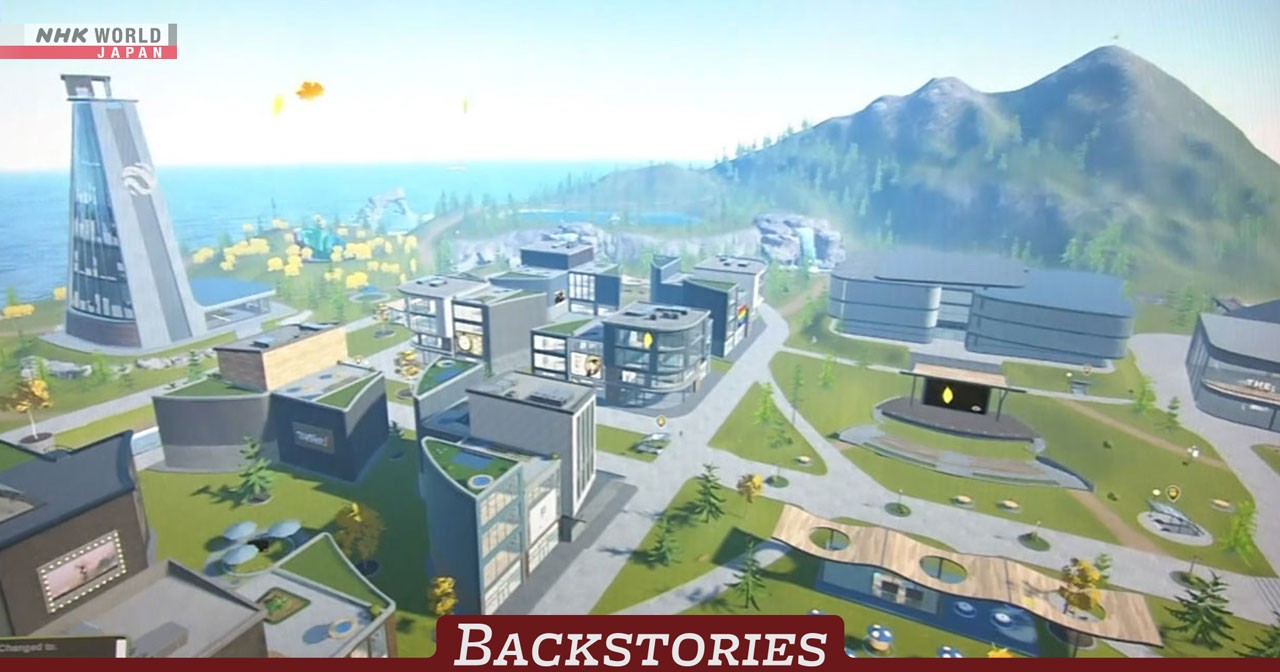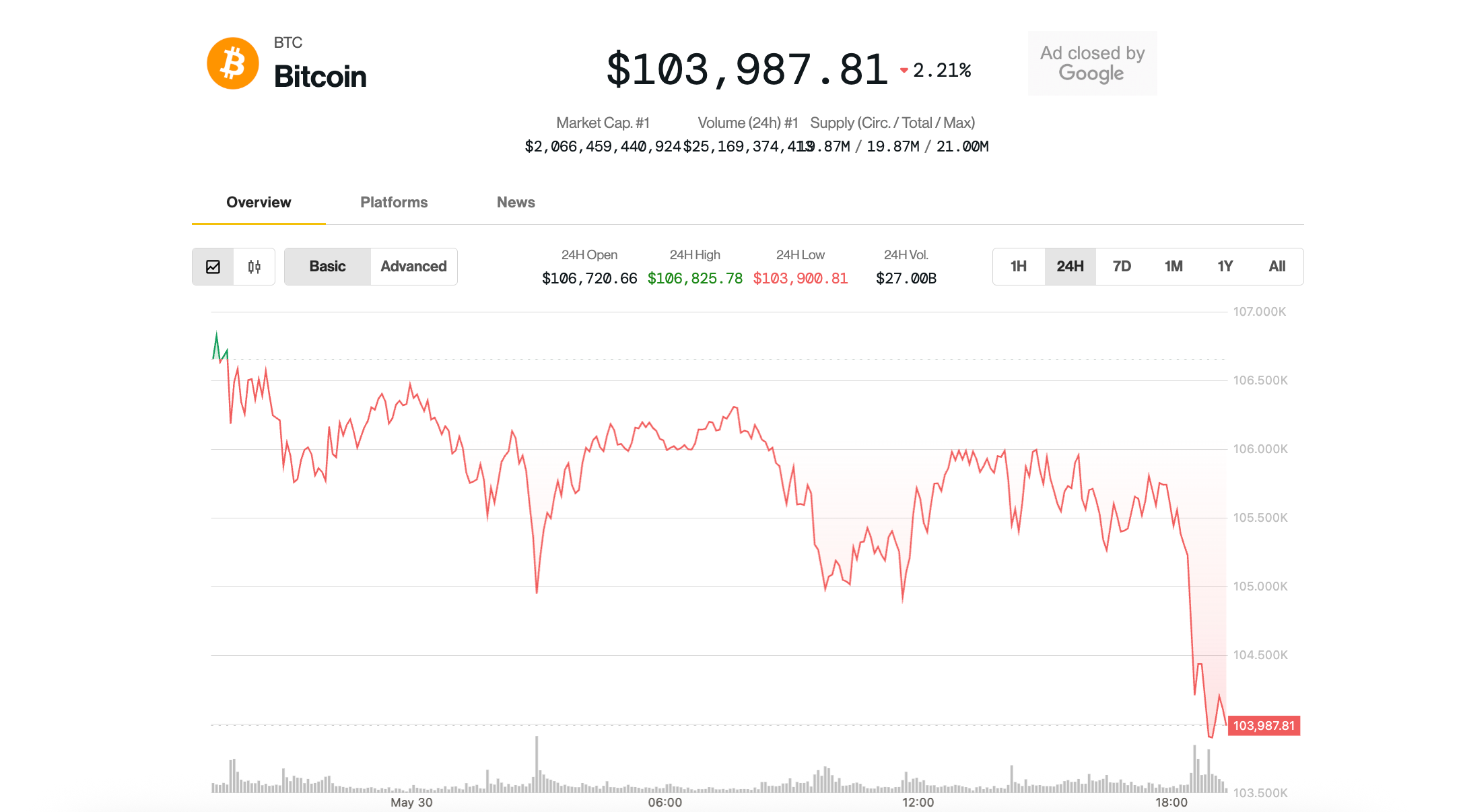Japanese businesses are playing catchup in the immersive, 3D online world known as the metaverse. But their efforts are now paying off as the foundations of a true economic ecosystem come into view — and both workers and companies stand to profit.
Tanaka Mako’s commute to her job as a receptionist in the metaverse looks a lot like that of millions of other remote workers: She sits down at her computer at home and logs on. The difference is, she spends her day communicating with customers through an avatar.
Her “office” is located in a Japanese offshoot of a multi-region world created by a US company. The town is a fully functioning urban center, with office buildings, shopping malls, a park and a harbor. The shops and restaurants are run by retailers in the real world, and visitors use an e-commerce site to make purchases.

Tanaka started her new job last July — and with much relief. “I thought I had to give up working when a family member suddenly needed caring for at home,” she says. The pay check is important. But what she really likes about the job is the social interaction. “I can feel myself connected to society even though I stay home.”
The portal to Tanaka’s new lifestyle was opened to her by staffing agency Persol Marketing. The agency started filling positions in the metaverse last year. Clients include private companies and local governments exploring new ways of using virtual spaces.
Kawauchi Koji, General Manager of Persol’s Metaverse Design Division, says the company is betting on exponential growth. “We think the idea of working in the metaverse will become a real option for job seekers within three to five years.”
Opportunities in the metaverse market

The metaverse market in Japan is still small compared to other countries like the US. But the Yano Research Institute forecasts the sector will be worth $7.5 billion in the 2026 fiscal year — more than 10 times its size in the 2021 fiscal year.
For that to happen, businesses will need help to navigate the brave new world of commerce. Support services are springing up to meet that need — some rooted in old-school industries.
Printing company Toppan is one of them. Despite the traditional nature of its business, the company is bristling with digital technology developed in the ongoing transition from paper catalogs to online promotion.

Toppan is now using those tools to produce hyper-realistic images for the metaverse. The company says that because customers will be aiming to “make decisions to purchase items without looking at the real thing, accuracy is absolutely essential in the virtual store.”
Toppan showed off what this could look like at an IT and electronics exhibition last October. Its virtual showroom of automobiles immersed visitors in four-wheel glamor — from gleaming dashboard panels to plush seat covers.
JVCKenwood is another player that believes realistic customer experiences are crucial. The company got its start in radio, but its focus for the metaverse is a cutting-edge 3D camera that can reproduce reality in real time, creating images that it believes will replace the animations and other crude stand-ins for people and objects that currently dominate the space.

Making 3D images is a painstaking process that usually requires multiple cameras and laborious editing. But JVCKenwood’s technology will allow one camera to easily reproduce real-time, moving images of objects in the virtual world — essentially streaming the real world into the metaverse.
Construction firm Atos is another seemingly odd participant in this cutting-edge economy. The company has repurposed a scanner originally developed for land surveys — also in the name of realistic immersion. Its device can create 3D images of large objects like a station, a castle or a bridge.

“The selling point here is ease of use. You just walk and scan the object with the device,” says Atos president Watanabe Naoya. “You don’t need a drone to picture it from the above.” Everything, from the floor layout to the shape of the ceiling, can be perfectly reproduced in three dimensions.
Perhaps the appearance of Japan Inc’s old names in the metaverse should come as no surprise. After all, whole new worlds are under construction.
The local arm of American IT giant Meta certainly believes in this grand vision. Japan Managing Director Ajisawa Masahiro says “the metaverse will eventually encompass every facet of our day-to-day existence: our work, education, welfare, medical care and more.”

He and other proponents of this fully immersive new world believe the metaverse won’t simply transform our lives. It will become our lives.
Read More: news.google.com









 Bitcoin
Bitcoin  Ethereum
Ethereum  Tether
Tether  XRP
XRP  Solana
Solana  USDC
USDC  Dogecoin
Dogecoin  TRON
TRON  Cardano
Cardano  Lido Staked Ether
Lido Staked Ether  Wrapped Bitcoin
Wrapped Bitcoin  Hyperliquid
Hyperliquid  Sui
Sui  Wrapped stETH
Wrapped stETH  Chainlink
Chainlink  Avalanche
Avalanche  Stellar
Stellar  Bitcoin Cash
Bitcoin Cash  LEO Token
LEO Token  Toncoin
Toncoin  Shiba Inu
Shiba Inu  USDS
USDS  Hedera
Hedera  WETH
WETH  Litecoin
Litecoin  Wrapped eETH
Wrapped eETH  Polkadot
Polkadot  Binance Bridged USDT (BNB Smart Chain)
Binance Bridged USDT (BNB Smart Chain)  Monero
Monero  Bitget Token
Bitget Token  Ethena USDe
Ethena USDe  Pepe
Pepe  Pi Network
Pi Network  Coinbase Wrapped BTC
Coinbase Wrapped BTC  WhiteBIT Coin
WhiteBIT Coin  Dai
Dai  Aave
Aave  Uniswap
Uniswap  Bittensor
Bittensor  Cronos
Cronos  Ethena Staked USDe
Ethena Staked USDe  OKB
OKB  NEAR Protocol
NEAR Protocol  Aptos
Aptos  Jito Staked SOL
Jito Staked SOL  BlackRock USD Institutional Digital Liquidity Fund
BlackRock USD Institutional Digital Liquidity Fund  Tokenize Xchange
Tokenize Xchange  Ondo
Ondo  Internet Computer
Internet Computer